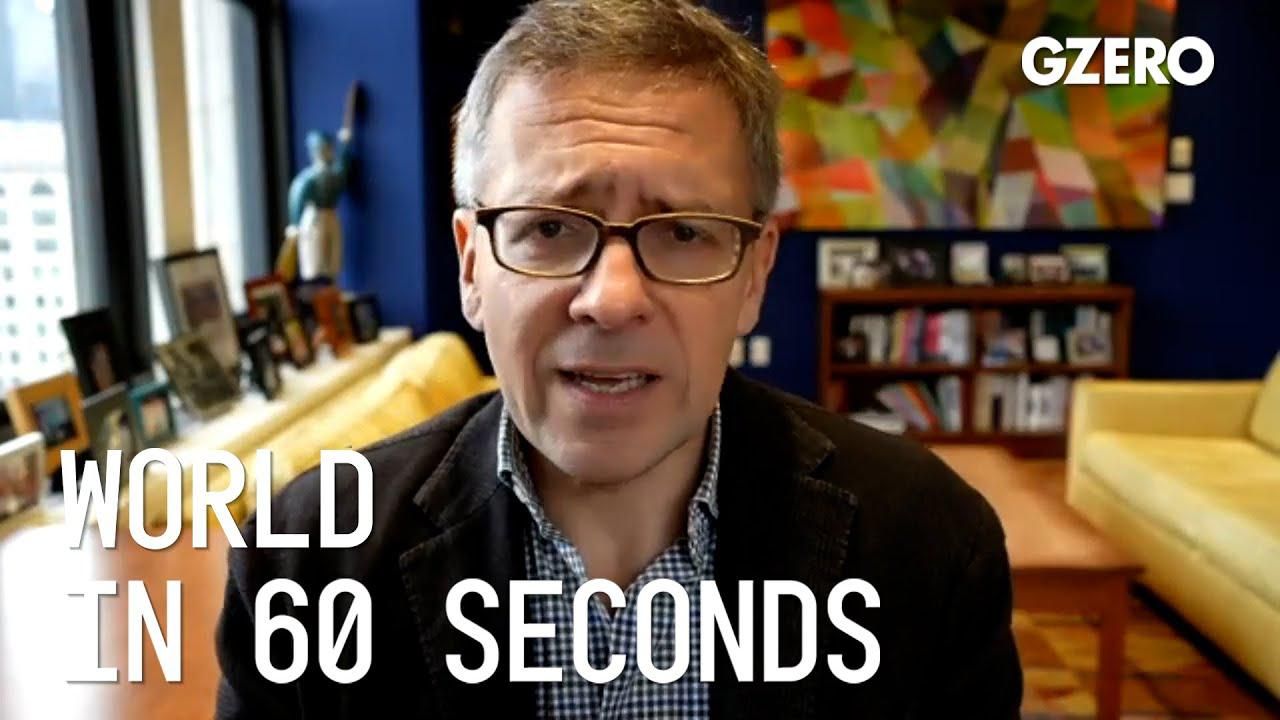Ian Bremmer shares his insights on global politics this week with a look at world leaders' deforestation pledge, US election outlooks, and China's "zero COVID" policy.
World leaders are pledging to end deforestation by 2030. What are the updates on COP26?
Well, that is one of the wins. It's the same pledge, but more countries are on board. The Russians, the Chinese, others that weren't before, and also, we're seeing movement on methane reduction pledges. Not as significant in amount as carbon dioxide emissions, but more dangerous in terms of impact on global warming. But the big issue, of course, is that still on carbon into the atmosphere, much lower coordination than you desperately need between north and south, rich and poor, Americans and Chinese. We are very far from where we want to be on that, and there, COP26 is a disappointment.
How are the elections going in the United States?
Well, it's early for me to say. I feel very comfortable saying Eric Adams here in New York City is going to be the next mayor. That doesn't require any intelligence on my part. Dems just win in New York. Plus, Sliwa on the Republican side has something like 18 cats in a studio apartment. You can't vote for that. You just can't do that. You can't do that. But of course, Virginia is what's interesting. If you made me bet, gun to my head, I'd say Youngkin wins, the Republican, in part because he has been able to navigate both getting Trump's support without being seen as close to Trump, which is hard to do. He's been more effective at most things. He's also been playing the culture war, the education war, identity war card very effectively and McAuliffe has not been very effective in response. So, it looks to me like the most important election of the day probably goes GOP, but it's really tight and I wouldn't want to make a big bet on that.
China urges families to stock up on food for winter months. How long can China's "zero COVID" policy last?
This is really not the message you want to be sending, as the Chinese President, trying to get his unprecedented third term, getting rid of term limits and saying, "By the way, we've got all of these energy challenges and now we might have food challenges." China's supposed to be the manufacturing center and the supply chain center for the world, but because they have zero tolerance for COVID, that has meant absolute lockdowns in addition to surveillance whenever they have outbreaks. That's a really hard thing to handle when you've got Delta variant that transmits very easily. And your vaccines, which are being rolled out across the country, but they don't work very well against Delta variant. I have to think that at some point, they're going to need to show more flexibility and avoid "zero COVID". As challenging as it will be to say that they got it wrong, they just need to say something like, "Well, we have more people vaccinated so it's not as lethal, but we can handle some level of spread," because otherwise, the economic hit for China, and of course the rest of the world, is going to be come increasingly hard for them to bear. A very tough corner they have backed themselves into on COVID, the Chinese.
More For You
In this Quick Take, Ian Bremmer addresses the killing of Alex Pretti at a protest in Minneapolis, calling it “a tipping point” in America’s increasingly volatile politics.
Most Popular
Who decides the boundaries for artificial intelligence, and how do governments ensure public trust? Speaking at the 2026 World Economic Forum in Davos, Arancha González Laya, Dean of the Paris School of International Affairs and former Foreign Minister of Spain, emphasized the importance of clear regulations to maintain trust in technology.
Will AI change the balance of power in the world? At the 2026 World Economic Forum in Davos, Ian Bremmer addresses how artificial intelligence could redefine global politics, human behavior, and societal stability.
Ian Bremmer sits down with Finland’s President Alexander Stubb and the IMF’s Kristalina Georgieva on the sidelines of the World Economic Forum to discuss President Trump’s Greenland threats, the state of the global economy, and the future of the transatlantic relationship.
